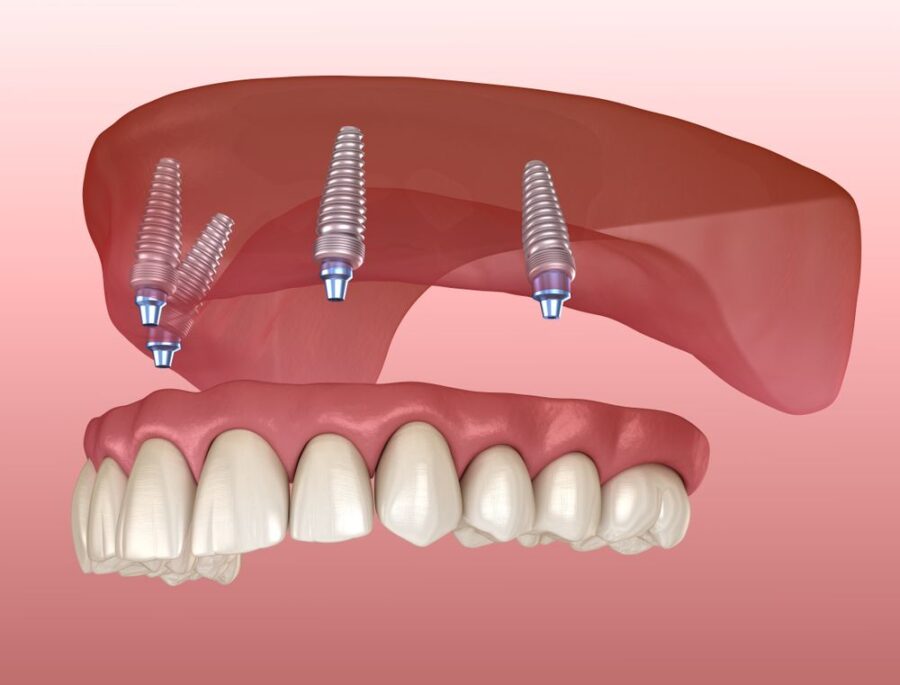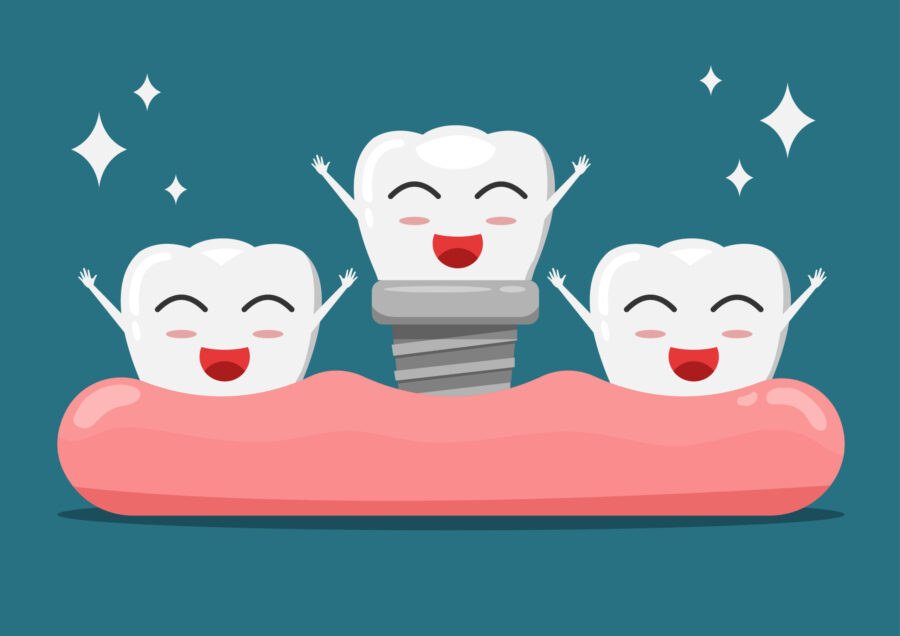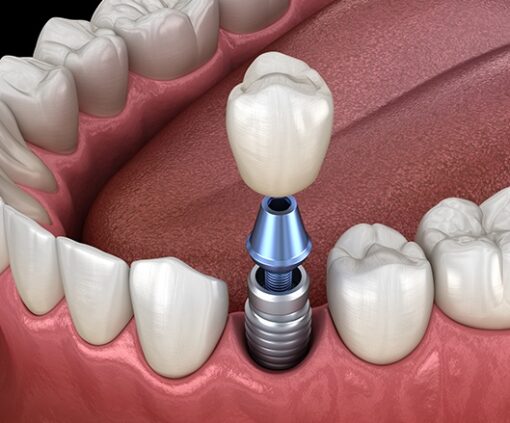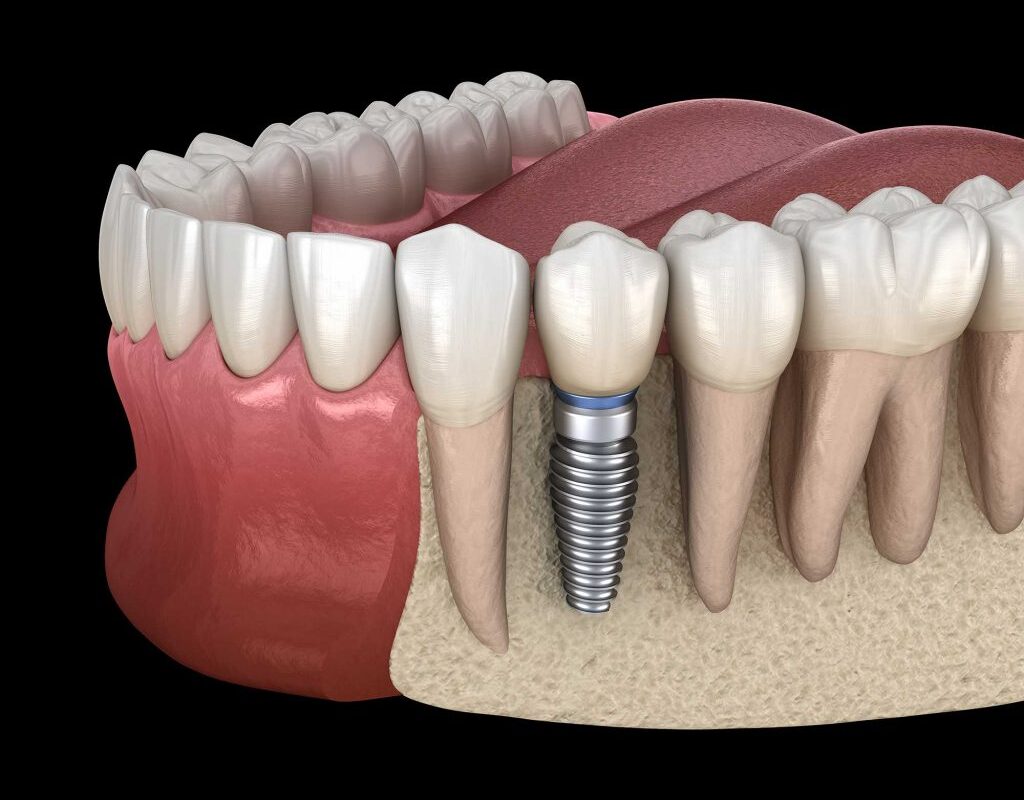When you have missing teeth, it can affect more than your appearance. It can also have a significant impact on your speech, chewing ability, and the overall health of your remaining teeth. If you’ve been told that dental implants aren’t an option for you because they won’t support natural-looking artificial teeth, don’t give up hope just yet! They are are often avoided as an option for people who need tooth replacement because of the prevailing misconception that they will not support the placement of dentures or other restorations. However, today’s advanced technology has made it possible to place dental implants so that there isn’t any interference with the placement of future dentures.
How do dental implants work?
Approved by the U.S. Food and Drug Administration in 2002, They are titanium rods that are surgically placed into the jawbone. Once the implant has healed in place, it can be used to support a natural-looking replacement tooth or teeth. It’s important to note that dental implants don’t work in the same way as dentures, which are placed over the gums and teeth. Rather, It actually replace the root structure of teeth, which allows for a more natural look and feel than traditional dentures.

They are a long-term solution to missing teeth. Unlike dentures, which are worn for only short periods of time, dental implants can last a lifetime! The dental implant process can take up to a year or slightly more if a bone graft procedure is necessary. Without a bone graft procedure, patients can expect the restoration process to take between five and eight months, although treatment times vary.
Missing tooth
One of the best reasons to replace a lost tooth is that your teeth all depend on one another. Your teeth are subjected to great force, which mostly comes from above, but also includes forces that push the teeth sideways as well. Your teeth are able to stand up to this force because they all work together.
When one tooth is missing, the same amount of load gets distributed over fewer teeth, which means that each tooth has to support more force, increasing the amount of wear and the risk of fracture to that tooth. And without a neighbor to brace up against, sideways forces can cause your teeth to drift or tilt.

Dental implants give you a full set of teeth again so that the load can be shared as it was before. And they’re the only tooth replacement option that can do this because they’re the only tooth replacement option that distributes force down to your jaw bone.
Will dental implants be right for me?
While many people are eligible for dental implants, there are some conditions that may make this solution less than ideal for you. Anyone who has compromised gum or bone health will likely not be a good candidate for dental implants. People with diabetes, Osteoporosis, periodontal disease or any other condition that impairs bone health may need to look into other tooth replacement options.
Another important factor to consider is the amount of remaining bone in your jaw. Because dental implants require a healthy amount of bone to be placed in the jaw. You should have enough bone left in your mouth to allow for an implant. Again, these are just a few examples of factors that may impact your ability to have dental implants. Your dentist will be able to conduct a more thorough assessment to determine if dental implants are the right tooth replacement option for you.
How can dental implants be used to replace teeth?
Depending on the location of the missing teeth, dental implants can be placed vertically or horizontally. Vertical dental implants are used to replace teeth in the back of the mouth. And horizontal dental implants are used for teeth in the front of the mouth. Depending on the location of the missing teeth, one type of implant may be a better choice than the other. Your dentist will be able to discuss your specific needs and provide a recommendation for the best type of implant for your situation.

Dental implants are a form of tooth replacement. There are three components to dental implant restoration. Which are the implant itself, the abutment for each implant, and the restoration. When replacing multiple missing teeth. The dentist uses either a dental bridge (partial denture) or a complete denture that is permanently fixed into place and is non-removable. Depending on the number of teeth that are being replaced, the dentist can use from two to five dental implants.
What are the benefits of dental implants?
They are a long-term solution to missing teeth. Unlike dentures, It will last a lifetime. Unlike dentures, dental implants will not move around in your mouth. And they will feel more stable and secure while you eat, speak, and smile. It won’t cause any damage to the remaining teeth and gums. Dentures can put a lot of strain on the gums, and they can contribute to the deterioration of other teeth. It can improve the overall health of your mouth. While dentures can have a negative impact on the health of your mouth.
You will not find a better or longer-lasting option to restore your missing teeth than dental implants. It will enjoy teeth that feel and function just like natural ones, and most importantly. No one will be able to tell that they are not your natural teeth. You will undergo regular dental hygiene such as brushing, flossing, and visiting your dentist for checkups and cleanings.
Final Words
If you’re missing teeth and have been told that dental implants aren’t an option for you. Don’t give up hope just yet! Dental implants are often avoided as an option for people who need tooth replacement because of the prevailing misconception that they will not support the placement of dentures or other restorations. However, today’s advanced technology has made it possible to place dental implants so that there isn’t any interference with the placement of future dentures or fixed bridgedOther words for bridging include: Fixed dental prosthesis. Fixed dental prostheses, and Fixed partial denture. You can discuss your specific needs with a dentist to find out are a good fit for you.






